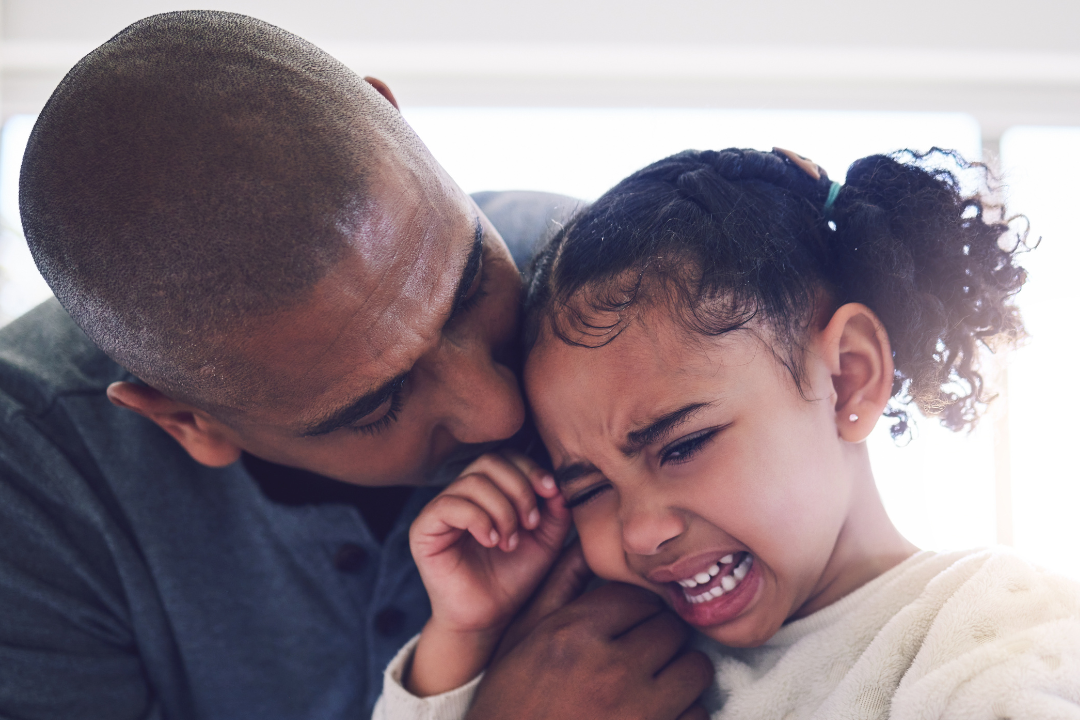In a survey conducted by Pharma Dynamics (2020) it was revealed that 56% of South Africans experienced higher levels of psychological and emotional distress, since the start of the COVID-19 pandemic. Furthermore, 49% reported feeling anxious, and 31% felt depressed. A few years later The Mbalo Brief from October 2024 highlighted that South Africa ranks high, among countries with mental health disorders, which includes anxiety and depression (Statistics South Africa, 2024). The words stress and anxiety have therefore become part of our daily lives, yet as adults we struggle to find ways to manage it. Stress is however a natural human response that forms part of everyday life which affects adults, adolescents, and children to some degree. However, when stress becomes overwhelming or difficult to bear it may result in mental health disorders such as anxiety and depression. As a parent, it is your responsibility to find ways to support your child in managing stress and anxiety. Here are some strategies to help your child cope with these challenges:
- Encourage Open Communication
Create a safe space where your child feels comfortable talking about their feelings. Ask open-ended questions and listen without judgment. As adults we often times listen to answer, and do not listen to understand what our children are truly trying to communicate. Do this by creating times throughout your day where your child can freely talk to you, for example at the dinner table or when walking the dogs after work.
- Practice Mindfulness Together
Mindfulness is defined as “Maintaining a moment-by-moment awareness of our thoughts, feelings, bodily sensations, and surrounding environment through a gentle, nurturing lens” (The Greater Good Science Center, 2025). Mindfulness exercises, such as deep breathing and meditation, can help your child stay present and reduce anxiety. One example is mindful breathing, that involves bringing attention to the physical sensations of the breath as it flows in and out of one’s body. Another example is the body scan, where you bring attention to different parts of your body in turn, from head to toe.
- Limit Screen Time
Australia recently passed a landmark legislation called the Online Safety Amendment (Social Media Minimum Age) Bill 2024, which bans children and teenagers under the age of 16 from using social media platforms such as TikTok, Instagram, Snapchat, and Facebook. The policy aims to protect young people’s mental health and wellbeing by placing the responsibility on social media companies to ensure compliance. This Bill will aid parents in reducing excessive screen time which can contribute to stress and anxiety, hence parents have to set boundaries for screen usage and encourage other activities, such as reading or playing outside.
- Maintain a Routine
Children often complain about routine but feel safe when it is put in place. A consistent daily routine provides a sense of stability, and predictability, which can help reduce anxiety. Ensure your child has regular sleep (more than 8 hours), meal, and activity times.
- Encourage Physical Activity
Regular physical activity is a great way to reduce stress and improve mood. Regular physical activity stimulates the release of endorphins, which are natural mood lifters, and can reduce stress by calming the mind. Therefore, encourage your child to participate in sports, dance, or any other physical activities they enjoy. These activities will also serve as a hub where they can practice and improve their socialisation skills.
- Teach Problem-Solving Skills
Help your child develop problem-solving skills by discussing potential solutions to their worries and practicing them together. This empowers them to handle challenges more effectively and provides them with a sense of empowerment.
- Be a Good Role Model
Children often learn by observing others and in this case their parents. Model healthy ways of managing stress and anxiety, such as taking breaks, practicing self-care, practicing hobbies and staying calm in difficult situations. A healthy parent will raise a healthy child, since you will be in a better position to think creatively, be patient and listen when needed.
- Encourage Creativity
When we are stressed, we tend to become less creative and struggle with problem solving. Creative activities, such as drawing, painting, or playing music, can be therapeutic and help your child express their emotions in a healthy way. Parents should therefore create opportunities for their kids to become creative – Pinterest is your friend here, since there are fun experiments and creative ideas to find there, like building a fort in the living room.
- Foster a Positive Environment
Create a supportive and positive home environment where your child feels loved and valued. Celebrate their achievements and provide encouragement during challenging times. Just show up.
- Seek Professional Help if Needed
If your child’s anxiety is severe or persistent, consider seeking help from a mental health professional. They can provide additional support and guidance tailored to your child’s needs. Remember, Vita Nova Counselling Centre is here to help in your time of need.
References
- American Psychological Association. 2024. How to help children and teens manage their stress. Access: https://www.apa.org/topics/children/stress.
- Mayo Clinic Health System. 2021. Helping children manage anxiety. Accessed: https://www.mayoclinichealthsystem.org/hometown-health/speaking-of-health/9-tools-for-helping-your-child-manage-anxiety.
- Fisak, B., Penna, A., Mian, N. D., Lamoli, L., Margaris, A., & Dela Cruz, S A.M. 2023. The effectiveness of anxiety interventions for young children: A meta-analytic review. Journal of Child and Family Studies, 32, 2546–2557. https://link.springer.com/article/10.1007/s10826-023-02596-y?citationMarker=43dcd9a7-70db-4a1f-b0ae-981daa162054 “5”).
- DeAngelis, T. 2022. Anxiety among kids is on the rise. Wider access to CBT may provide needed solutions. Monitor on Psychology, 53(7). https://www.apa.org/monitor/2022/10/child-anxiety-treatment?citationMarker=43dcd9a7-70db-4a1f-b0ae-981daa162054 “6”.
- Romero, A., Petro, M. & Ruiz, E. P. (2024). Anxiety, depression, and stress on school-aged children and adolescents in 2021: An urgent need for comprehensive intervention and support. European Psychiatry, 67(S1). https://www.cambridge.org/core/journals/european-psychiatry/article/anxiety-depression-and-stress-on-schoolaged-children-and-adolescents-in-2021-an-urgent-need-for-comprehensive-intervention-and-support/DFB7EEA8BFEAE59C5ECF2720E1F312E1?citationMarker=43dcd9a7-70db-4a1f-b0ae-981daa162054 “7”.
The Author: Racheal Johnston (Social Worker specialising in Play Therapy)

More about Racheal Johnston: https://www.vitanova.co.za/meet-the-team/racheal-johnston/
To schedule a session with the author or any of our counsellors at Vita Nova, please contact us on 0712979992, or go to www.vitanova.co.za. We offer a range of counselling services and have interns that can provide you with assistance for free if you are not in a position to afford therapy.
For 24 hr assistance on mental health matters contact SADAG on 0800 567 567
Help is always available.


